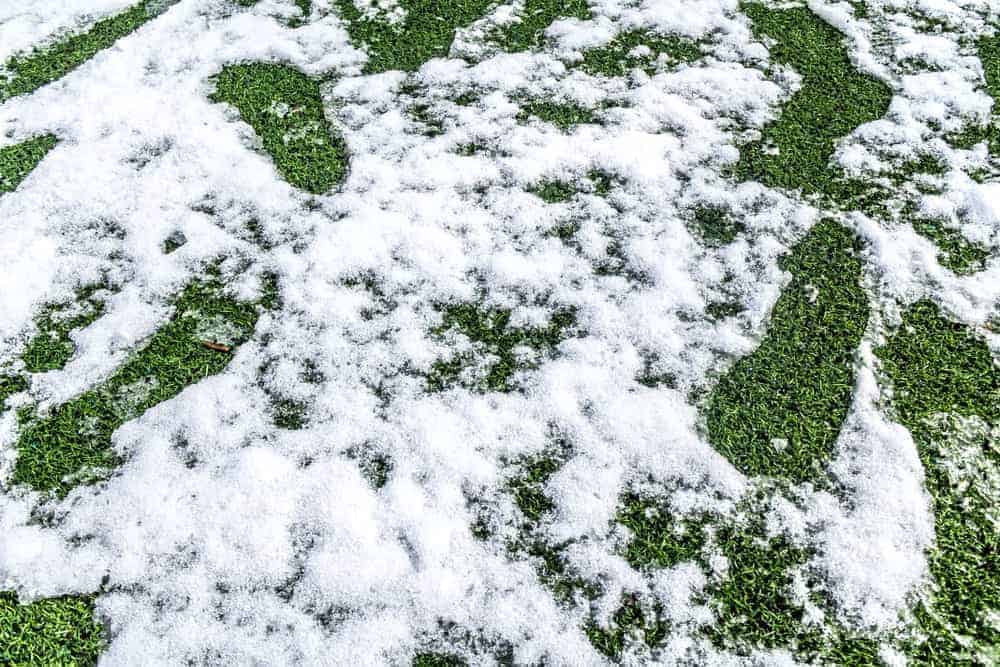3 min read
Last updated: April 12, 2023
 One of the main reasons people choose to install artificial grass in their gardens is the lack of maintenance it requires to have garden that still looks great. Artificial turf requires no water and doesn’t involve any of the pitfalls of natural turf such as weeds, mud, and pests. Whilst it’s true that you don’t have to tend to artificial grass once you’ve had it installed, a little TLC once in a while can really prolong its lifespan! Read on to find out how to maintain your artificial lawn in autumn-winter for a better looking, longer lasting lawn.
One of the main reasons people choose to install artificial grass in their gardens is the lack of maintenance it requires to have garden that still looks great. Artificial turf requires no water and doesn’t involve any of the pitfalls of natural turf such as weeds, mud, and pests. Whilst it’s true that you don’t have to tend to artificial grass once you’ve had it installed, a little TLC once in a while can really prolong its lifespan! Read on to find out how to maintain your artificial lawn in autumn-winter for a better looking, longer lasting lawn.
Heavy Rain
Professional installation guarantees that your artificial grass will be installed with a drainage system designed to handle most weather conditions. However, in rare cases of heavy downpours, this drainage system will need to be checked to ensure it hasn’t become waterlogged. A damaged drainage system can cause your turf to become deformed and your lawn to become unstable.
Snow & Frost
Whilst we’re not likely to see any snow until early next year it’s worth considering the impact of both snow and frost on your artificial lawn. Don’t worry, unlike natural turf there’s no danger of the blades snapping off once they freeze over for the winter. That being said the cold weather can cause the fibres in your artificial lawn to stiffen and become quite slippery so it’s important to exercise caution before walking on synthetic turf in the winter months. One of the very few ways you can damage artificial grass in autumn/winter is by aggressively trying to remove frost or snow. We always recommend letting frost thaw naturally and removing excess snow by hand. If you really need a little extra help you can use a little salt but never ever use chemical defrosters.
Weather-Proofing Your Artificial Grass
There’s no question that artificial grass requires a lot less maintenance than natural turf no matter what the season, but particularly during the colder months. If you’re looking for a truly maintenance-free experience now the weather is turning, there are steps you can take to completely weather-proof your fake lawn. Something as simple as an adequately sized tarpaulin sheet will protect your faux grass from all elements. It will take the brunt of any rain/snow and, whilst it won’t stop your grass from frosting over, it will mitigate the risk of any slips or falls. Artificial turf certainly doesn’t need weather-proofing but it can help you get the very most out of your lawn’s lifespan, especially if you live in an area that’s prone to more dramatic weather conditions.
Related Category: Installation & Maintenance
